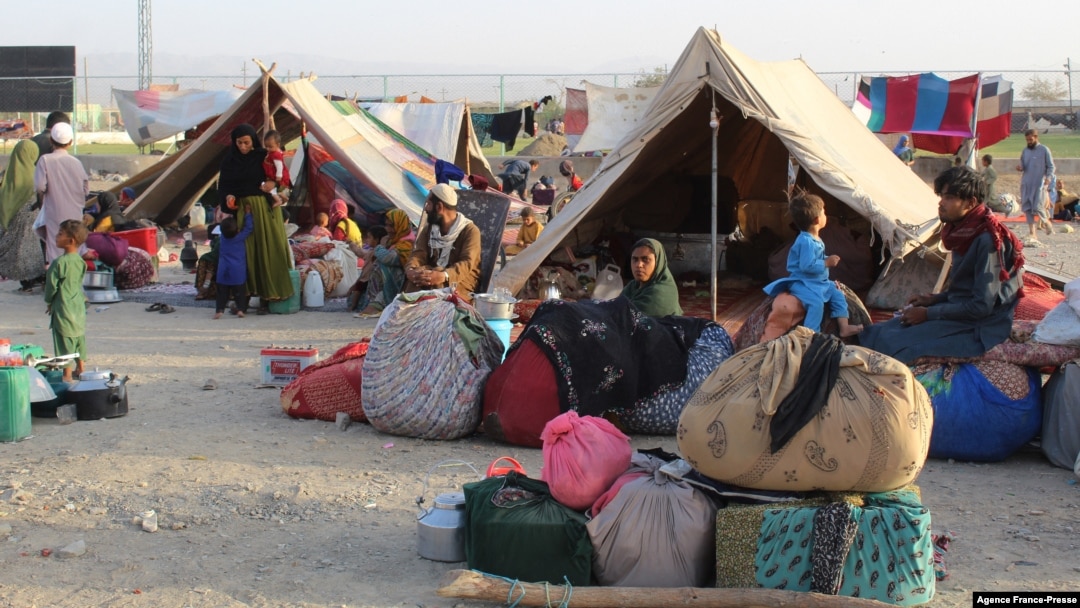
by Hammad Baloch 7 October 2023
Pakistan’s recent decision to repatriate over 1.1 million illegal Afghan refugees residing within its borders marks a pivotal moment in the nation’s enduring struggle to reconcile its humanitarian commitments with its pressing economic and strategic security imperatives. This multifaceted decision carries profound implications not only for Pakistan but also for the wider region and the international community. To comprehensively understand the gravity of Pakistan’s stance, it is essential to delve deeper into the intricate challenges that have driven this policy shift and explore the intricate tapestry of economic, security, and geopolitical factors shaping Pakistan’s approach.
One of the most pressing concerns that has driven Pakistan’s decision to repatriate Afghan refugees is the immense economic burden that hosting this population has placed on the country for decades. Pakistan has expended substantial resources on providing essential services such as healthcare, education, and shelter to this vulnerable population. These financial commitments, while rooted in humanitarian principles, have strained Pakistan’s economic capabilities, diverting resources that could have otherwise been allocated towards addressing domestic issues and promoting economic development. At the heart of this economic challenge is the fact that Pakistan, like many developing nations, faces resource constraints and competing demands for its limited funds. Hosting a vast number of Afghan refugees has placed additional pressure on already scarce resources. Resource scarcity has been a persistent challenge for Pakistan, particularly in regions heavily impacted by the refugee influx. Vital resources such as water, arable land, and employment opportunities have been stretched thin due to the demands of the Afghan refugee population. In areas where resources are already limited, the presence of a large number of refugees has strained local infrastructure and public services, affecting both the refugee and host communities.
Another critical aspect of Pakistan’s decision to repatriate Afghan refugees is the array of security challenges associated with hosting this diverse population. While the majority of Afghan refugees are peaceful and law-abiding, a subset has been involved in illicit activities, including narcotics smuggling and banned goods trade. These illicit activities not only undermine Pakistan’s security but also pose significant challenges to its law enforcement agencies. The presence of the Tehreek-e-Taliban Pakistan (TTP) operating from Afghan soil has been a persistent security threat to Pakistan. The TTP has launched numerous attacks within Pakistan, targeting civilians and security forces alike. The continued presence of Afghan refugees, some of whom may have affiliations with extremist groups or criminal networks, has complicated Pakistan’s efforts to neutralize these threats.
Pakistan’s decision to repatriate Afghan refugees is deeply intertwined with its broader strategic security concerns. The country has consistently sought cooperation from the Afghan Taliban, which now controls Afghanistan, in addressing the TTP threat emanating from Afghan territory. Pakistan’s skepticism regarding the Afghan Taliban’s commitment to this end has prompted it to adopt a firmer stance on the issue. By repatriating Afghan refugees, Pakistan aims to reduce the potential for security threats to emanate from within its borders, thus bolstering its strategic security posture. The strategic dimension of this decision is further underscored by Pakistan’s longstanding efforts to seek regional stability. As Afghanistan undergoes a significant transformation under the rule of the Afghan Taliban, Pakistan is keen to ensure that its own security interests are safeguarded. Given the complex and often tumultuous history of Pakistan-Afghanistan relations, the decision to repatriate Afghan refugees reflects Pakistan’s resolve to actively manage its security concerns in a changing geopolitical landscape.
Beyond its economic and security dimensions, Pakistan’s decision carries significant geopolitical implications, with reverberations that extend well beyond its borders. Pakistan’s actions in repatriating Afghan refugees may impact its standing in the region and its relations with key stakeholders, including Western powers. The international community, particularly the United States and its allies, has been closely monitoring the situation in Afghanistan. Their primary concern is ensuring that the Afghan Taliban uphold their commitments, including respecting human rights and preventing Afghanistan from becoming a safe haven for terrorists.
Amid these complex economic, security, and geopolitical considerations, it is essential to underscore the humanitarian dimensions of this decision. The United Nations High Commissioner for Refugees (UNHCR) has consistently opposed forced repatriation, emphasizing the importance of voluntary and dignified returns for refugees. This stance underscores the necessity of considering the welfare and human rights of Afghan refugees, many of whom may face insecurity and instability upon returning to Afghanistan. The humanitarian concerns are compounded by the fact that Afghanistan remains a volatile and uncertain environment. While there have been promises of peace and stability under the Afghan Taliban’s rule, the ground reality is marked by ongoing conflicts, human rights challenges, and economic uncertainty. The prospect of returning refugees encountering insecurity and limited access to basic necessities looms large.
In conclusion, Pakistan’s decision to repatriate more than 1.1 million illegal Afghan refugees is a multifaceted and deeply consequential policy move. It underscores Pakistan’s growing impatience with the challenges posed by this refugee population, particularly in the context of security threats such as the TTP. However, the decision also raises complex humanitarian concerns and has the potential to strain Pakistan’s relations with the Afghan Taliban and its standing in the international community. As this situation unfolds, it is crucial for all stakeholders to prioritize the welfare and rights of Afghan refugees while addressing legitimate security concerns. The region faces a complex and evolving landscape, and the decisions made today will undoubtedly shape its future. Pakistan’s move should serve as a catalyst for a broader dialogue on refugee management, regional security, and the pursuit of stability in Afghanistan and the surrounding region. In navigating these challenges, Pakistan’s stance exemplifies the intricate and often competing priorities that nations must grapple with in managing refugee populations and safeguarding their own security and interests.
